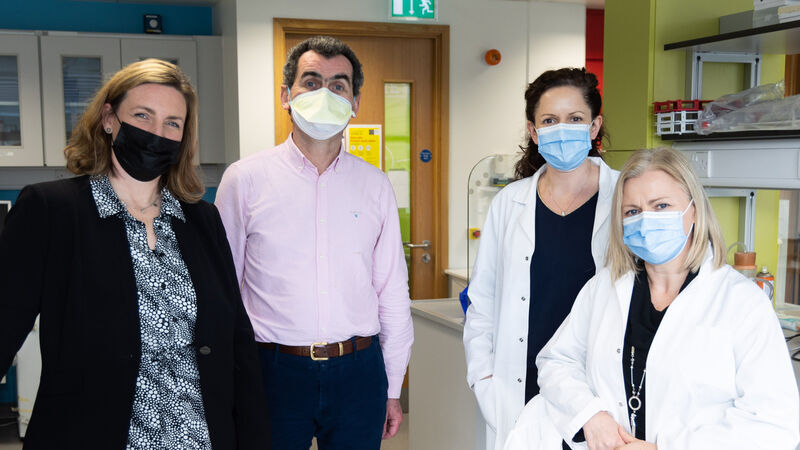Pandemic impact expected to set cancer treatment back 'five to 10 years'

Breakthrough Cancer Research chief executive Orla Dolan, Prof Seamus O’Reilly, Dr Tracey O'Donovan, and Dr Sharon McKenna in the Western Gateway Building, UCC. Picture: Darragh Kane
The pandemic’s catastrophic impact on cancer treatment is expected to last five to ten years, Breakthrough Cancer Research has warned.
Delayed diagnoses and the reduced capacity of hospitals has meant many cancer patients did not receive the treatment that was available before Covid-19 struck.













